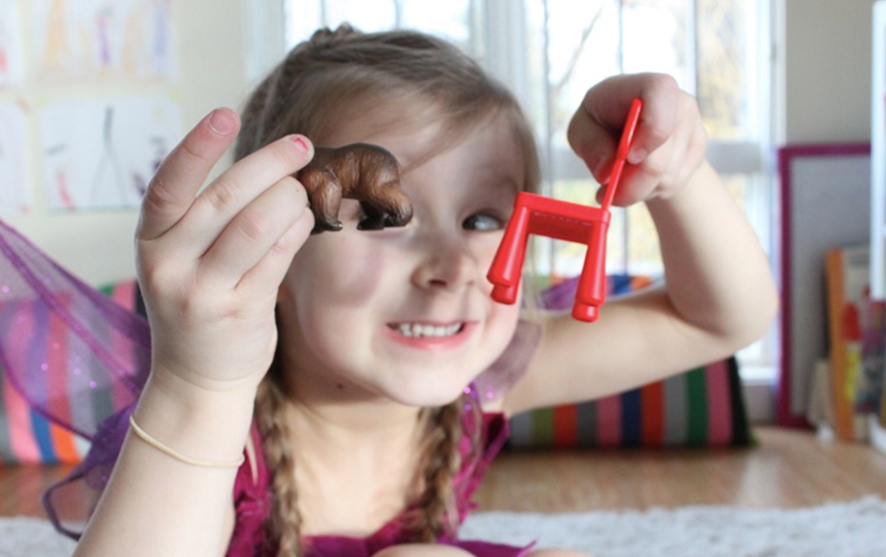Tidying up the garden grass
What you need Child-friendly scissors Some outdoor space - garden, park or grassy area Benefits [...]
Read more


Place your items in a few groups around your house, so that you and your child can hunt them out together (e.g. some -ats and some -ogs, then some -izards and -ars in a new space).
Ask your child whether they know what a rhyming word is, if not explain to them that it is two words that sound the same at the end and give a few examples. If possible, talk about rhyming words in their favourite books as these words will be very familiar to them.
Then tell them, “We’re going on a rhyme hunt, we’re going to find similar ones, what can you see? This one rhymes…” You could take the first go so that they have an example to lead from; lead them towards the first collection of items, “A cat! A fluffy, black cat… Does it sound like this? Does it sound like that? Oh, I know, it sounds like hat!”
Hopefully your child will begin to join in the words as you move on to hunt for the next selection of items. “We’re going on a rhyme hunt, we’re going to find similar ones, what can you see? This one rhymes…”
Then encourage your child to try: “A lizard! A dry, scaly lizard… Does it sound like this? Does it sound like that? Oh, I know, it sounds like wizard!”
Let your child take the lead when thinking about words that might rhyme with the initial item you’ve found. They might need encouragement by you repeating the first item and saying something like, “Lizard, hmm, does lizard sound like guitar? Does it sound like wizard? Lizard, guitar, lizard, wizard…” Try your best to not give the answer away, and let your child notice the similar sounds as you say them aloud. Encourage them to say them aloud too as this might also help. For an extra variation on this task, you can also go on alliteration hunts! Enjoy.